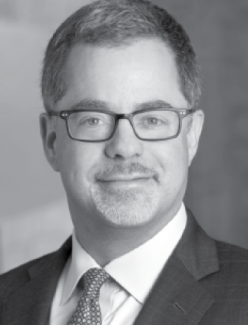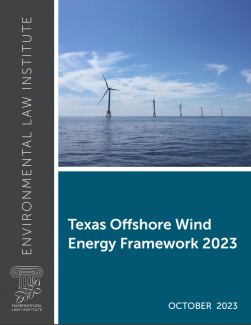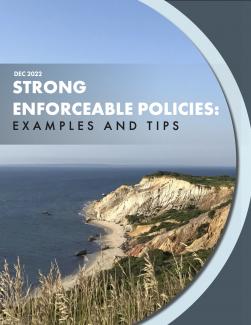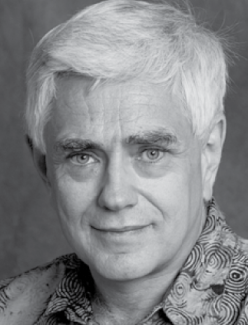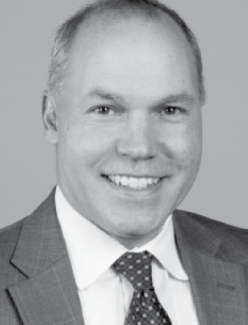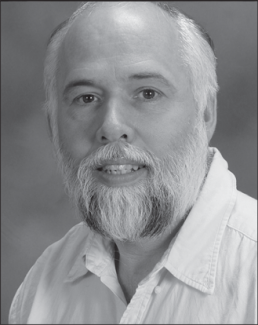The burgeoning legal cannabis industry continues to be a hot button topic across the nation, especially as the environmental implications of cultivation emerge. David Rejeski, Kasantha Moodley, and Azi Akpan, the team behind ELI’s Innovation Lab, are building partnerships with stakeholders to advance the environmental performance of this new industry.
In 2017, the first industry estimate of energy use was made, 4.1 million megawatt-hours in one year, with demand set to increase by 162 percent in just 5 years. There are also several environmental and public health implications associated with the industry’s nutrient-rich water discharges, air emissions, pesticide use, plant waste, and packaging waste.
A total of 33 states have legalized marijuana for medical use. 10 of these states and Washington, D.C., have also legalized it for adult recreational use. With no federal oversight and a fragmented regulatory system, states and industry alike are challenged with addressing these concerns.
The Lab’s podcast series “Conversations with Environmental Disruptors” has brought together a diverse set of weed visionaries. ELI’s Akpan interviewed Kaitlin Urso on her role at Colorado’s state government Cannabis Environmental Assistance Program. Urso consults with cannabis cultivators on sustainability, and brings awareness about potential permitting requirements. Her job is to support cultivators in their compliance efforts, without imposing requirements or restrictions on these new and growing businesses.
She also promotes voluntary actions such as the installation of water collection and re-use systems and waste management systems. Air emissions are also a concern — terpenes emitted from cannabis plants are volatile organic compounds and can affect ozone levels when accumulated on a large scale. Urso strongly emphasizes the necessity to gather baseline data, quantify impacts, and determine benchmarks to inform environmental approaches to tackling these problems.
In a recent podcast titled “A Cannabis Cultivator — Breaking the Grass Ceiling,” Jesse Peters, founder of EcoFirma Farms, shows visitors to the ELI website his 23,000-square-foot, indoor, carbon-neutral farm operation in Portland, Oregon. The farm utilizes sensors and automation systems linked to a software platform that monitors and regulates the nutrient feed, light, and water needed for optimal plant growth.
Peters has made significant capital investments and explains how the added technology transformed the financial and environmental sustainability of EcoFirma Farms. He touts that automation and tracking has made EcoFirma much more successful and accountable, has saved costs on labor, and has successfully maintained the quality and quantity of products at a competitive price. Peters believes that technology development will play a crucial role in the sustainable growth of the industry.
Beyond these episodes and at the forefront of current efforts, the ELI Innovation Lab is developing and disseminating informative and accessible materials to promote understanding of industry-wide impacts and the actions (regulatory or voluntary) that could be taken to address them.
In April, ELI staff attended the National Cannabis Festival in D.C., where they distributed materials to raise awareness on lawful pesticide use for the cannabis industry. The materials were developed in collaboration with the American Bar Association’s Pesticides, Chemical Regulation, and Right-to-Know Committee.
The Lab will continue this work in the future through a series of educational materials focusing on the full spectrum of environmental challenges facing the industry.
Conference, ELR special issue showcase year’s best articles
In late March, ELI held the 12th Environmental Law and Policy Annual Review Conference in Washington D.C. Each year, Vanderbilt Law students work with an expert advisory committee and senior staff from ELI to identify the year’s best academic articles that present legal and policy solutions to pressing environmental problems, some of which are then presented at the conference.
In a panel on federal energy leasing, winning author Jayni Foley Hein of the Institute for Policy Integrity at NYU School of Law argued that the Department of the Interior should update fossil fuel leasing and royalty rates on federal lands to maximize public benefit and social welfare. Panelists Tommy Beaudreau of Latham & Watkins and Rebecca Fischer and Daniel Timmons of Wild Earth Guardians delved into how Hein’s proposed reforms could result in less fossil fuel production, fewer greenhouse gas emissions, and more revenue than under existing rules.
In another panel discussion, author Richard Schragger of University of Virginia Law School proposed that in order for cities to fight against state preemption of environmental laws they should forge alliances with national interest groups, powerful corporations, and metropolitan regions to preserve their power to regulate and promote their interests. Gus Bauman of Beveridge & Diamond, Kim Haddow of Local Solutions Support Center, and Lewis Rosman from the City of Philadelphia Law Department provided their perspectives on the challenges cities face in passing environmental legislation.
In the final panel, on free trade and selective enforcement of environmental laws, author Timothy Meyer of Vanderbilt University Law School argued that the World Trade Organization investigations of trade remedies should be reformed by creating a centralized enforcement procedure. Jay Campbell of White & Case, Sharon Treat from the Institute of Agriculture and Trade Policy, and Steve Wolfson of the Environmental Protection Agency discussed their analysis of the proposal based on their practitioner and policymaking experience.
The winning articles by Professor Hein, Professor Schragger, and Professor Meyer, as well as the comments from this year’s panelists, will be published in a special issue of ELR in August.
ELI 50th anniversary celebration rolls out series of policy events
Special programming in ELI’s 50th anniversary year recently featured themes of compliance and re-imagining governance.
In February, ELI co-hosted with Greenberg Traurig, LLP, a discussion about the foundational objectives of the Superfund law. Panelists from the firm and Exponent and the Chesapeake Legal Alliance delved into how these objectives have evolved over time. They talked about issues surrounding the remediation and cleanup of Department of Defense sites, approaches to working with regulatory agencies, and cutting-edge and emerging technologies for damage assessments and remediation.
The same month, ELI held a webinar that explored the opportunities presented by increased state autonomy in environmental protection. Moderated by Donald Welsh, executive director of the Environmental Council of the States, it featured experts in interstate environmental coordination and attorneys with compliance experience.
In line with the theme “re-imaging environmental governance,” ELI hosted a conversation in March about UN General Assembly Resolution 72/277, known as “Toward a Global Pact for the Environment.” While many experts agree that the measure could help fill the gaps in international environmental law by providing guidance and transparency for adjudication in courts, bolstering the importance of human rights in environmental protection, and promoting a greater integration of environmental principles in non-environmental fields, questions still remain.
Moderated by ELI’s Xiao Recio-Blanco, panelists discussed principles needed to realize the potential impact of the pact on the developing world. Panelists included Justice Antonio Herman Benjamin, minister of the National High Court of Brazil, Roy S. Lee, professor at Yale University School of Forestry and Environmental Studies, and Nicholas Robinson, professor at Elisabeth Haub School of Law at Pace University.
Programming in May will highlight wetlands protection and in June will feature gender and the environment. Join the Environmental Law Institute in discussing the forefront of policy issues as we celebrate 50 years of environmental progress.
Field Notes: 30th annual National Wetlands Awards on May 7
This year marks the 30th edition of ELI’s annual National Wetlands Awards. Since 1989, over 200 champions of wetlands conservation have been honored.
The program recognizes individuals who have demonstrated exceptional effort, innovation, and excellence in wetlands conservation at the regional, state, and local levels.
Please join the Environmental Law Institute at this year’s National Wetlands Award Ceremony, taking place on Tuesday, May 7, from 6 to 8 p.m. at the U.S. Botanic Gardens in Washington, D.C.
This year’s awards include the 30th Anniversary Lifetime Achievement Award, to be presented to Richard Grant of Narrow River Preservation Association at the ceremony. Categorical awards will go to Greg Sutter of Westervelt Ecological Services for the Business Leadership award, Joel Gerwein at California State Coastal Conservancy for the Conservation & Restoration award, Robert Thomas for the Education & Outreach award, Tom and Mary Beth Magenau of Tri-State Marine for the Landowner Stewardship award, Robert Gearheart of Arcata Marsh Research Institute for the Science Research award, and hydrologist Angela Waupochick of the Stockbridge-Munsee Band of Mohicans for the State, Tribal, and Local Program Development award.
ELI congratulates these awardees on their achievements in advancing wetlands protection through their outstanding leadership.
❧
In January, expert panelists explored in an ELI public webinar how focused efforts in states of the upper Mississippi River that bring together farming, wastewater treatment, and state financing agencies can provide new funding for on-farm polluted runoff projects.
Panelists from Iowa, Illinois, and the National Association of Clean Water Agencies discussed how flexible funding structures that pair farmland with wastewater treatment providers can achieve targeted nutrient reduction in their respective states, and what they plan to achieve in the future.
Recent experience has shown that water and sewer financing programs can provide additional flexible funding for projects on farms while meeting the nutrient management goals of wastewater treatment authorities.
❧
In an effort to improve communication and environmental compliance globally, the International Network for Environmental Compliance and Enforcement, whose secretariat ELI hosts, has created Compliance Conversations, a network and capacity-building tool to support those working in the environment, development, or justice spaces. Through webinars launched in February, INECE convenes individuals from all over the world to discuss the cutting-edge environmental challenges their communities are facing.
The goal of the platform is to connect participants with experts from a variety of different backgrounds, experiences, and disciplines.
The first set of compliance conversations explored how stakeholders in off-grid communities can work to facilitate greywater treatment and reuse standards, led by Clive Lipchin, director of the Center for Transboundary Water Management at the Arava Institute.
❧
Since shortly after the 2010 Deepwater Horizon oil spill, the Environmental Law Institute has received support from the Walton Family Foundation to work with communities throughout the Gulf Coast region on advancing sustainable and inclusive restoration.
A primary focus of ELI’s work is on supporting public participation in the processes that govern disbursement of restoration funds under the Natural Resource Damage Assessment process and the RESTORE Act, as well as through the National Fish and Wildlife Foundation.
ELI’s Gulf Team regularly hosts training sessions and workshops for communities throughout the region. In February, ELI experts met with community leaders and local government officials in Gulfport, Biloxi, and Moss Point, Mississippi, to elucidate the process of developing and submitting proposals for restoration projects.
